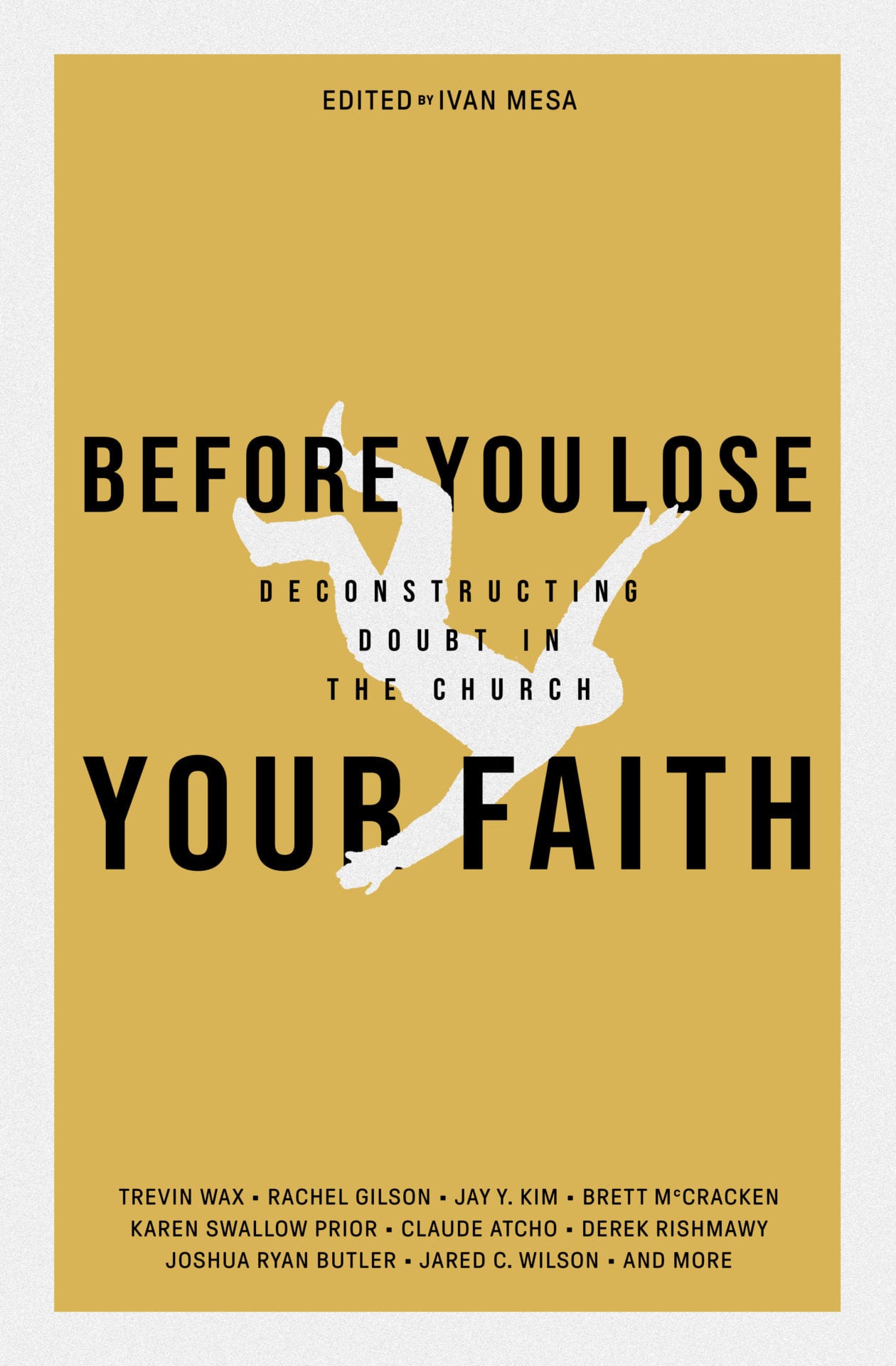Editors’ note: This is a two-part TGC Asks series weighing the question, “Are Christians today required to tithe?”
- 7 Reasons Christians Are Not Required to Tithe (Tom Schreiner)
Does the Bible command Christians to tithe and, if so, is the baseline 10 percent as expressed in the Old Testament? I believe the answer is yes. The tithe is essential for holiness, vital for the ongoing work of Christ’s church, and required for receiving God’s blessing.
My argument, in a nutshell, is this: The requirement to tithe preceded the Mosaic law, was codified in it with ceremonial aspects added, and was affirmed by Jesus as binding on his followers.
Tithing Before Moses
The first explicit references to the tithe appear in Genesis 14, where Abraham tithes to Melchizedek, and in Genesis 28, where Jacob promises to give God “a full tenth.” But where did the idea to tithe come from? Many argue Abraham and Jacob were simply following the customs of the surrounding nations. But Scripture points in a different direction. In Genesis 26:5, God says, “Abraham obeyed my voice and kept my charge, my commandments, my statutes, and my laws.” This language is almost identical to later instructions regarding the Mosaic law. This passage implies that God gave his people laws in addition to those written in Genesis.
It’s clear from Genesis 4 that the first family knew they had a responsibility to give back to God a portion of what God had given them. They were even held responsible for the kind of offering they gave. God accepted Abel’s offering and rejected Cain’s. In addition, since the Old Testament later links the offering of the “firstborn” and “firstfruits” to the tithe, it’s possible Abel’s offering was accepted precisely because it was a tithe. The Old Testament is clear God’s people were to give back to him—and that he’d given instructions about what that entailed.
Some have suggested Jacob was offering a one-time tithe in Genesis 28. But as John Currid observes, the verb “to tithe” describes frequent, multiple actions. Jacob appears to be “making a lifetime commitment to Yahweh in the matter of tithing.”
Why does Moses record these events? Since he later records God’s command to tithe, he would not have attempted to show Abraham and Jacob’s accommodation to the customs of the nations. Rather, he recorded it to demonstrate their piety.
Moreover, the writer of Hebrews shows the propriety of Abraham’s tithe since it was given to the “priest of the Most High God” (Heb. 7:1). There is an inherent sense of continuity in Hebrews 7 connecting Abraham’s tithe to the tithes the Levites received (and gave) under the Mosaic covenant. This is striking in a letter intent on showing aspects of the old covenant that no longer apply to new covenant believers. Yet far from revealing discontinuity, Hebrews leaves the impression that Christians will also tithe to their eternal high priest.
In these passages, then, the apparent requirement of a tithe comes before the giving of the Mosaic law, and is not tied to it. So while the tithe becomes codified in the old (Mosaic) covenant, it can’t be dismissed as part of the old covenant that’s been fulfilled in Christ and no longer applies to new covenant believers. These passages show the piety of the patriarchs and establish what God expects from his people.
It’s All His
When we come to the law, it becomes clear that the tithe is God’s standard for giving. The tithe doesn’t even belong to the giver, but to the Lord (Lev. 27:30 NLT). God’s people were not even to think of the tithe as theirs to do with as they pleased. It was the Lord’s, and they were to automatically give it back to him.
Under the Mosaic law, there appear to be three tithes: a regular tithe given to support the priests and the work of the temple; a “festival tithe” for the celebration of the required feasts (cf. Deut. 12:17–19); and a “charity tithe,” given every third year to the Levite, the sojourner, the fatherless, and the widow (Deut. 14:28–29). If this is true, the Israelites were actually required to give 23.3 percent of their income, not 10 percent.
Many Old Testament scholars don’t see these as three separate tithes, but as three uses of one. Yet even if there were three tithes, as is likely the case, it’s no surprise the amount would increase when wedded with the ceremonial law, especially with the required festivals—all of which have been fulfilled in Christ.
We see this happen with the Sabbath—an eternal moral law rooted in creation—which takes on various ceremonial aspects under the Mosaic law (ceremonies involving showbread, for example). This is what Paul is talking about in Colossians 2:16, when he forbids letting anyone pass judgment in questions of Sabbath. Under the new covenant, the ceremonial aspects fall away while the moral law of the Sabbath remains.
The same is true of the tithe. The basic tithe, supporting the work of ministry, remains, even while ceremonial aspects fall away. Yet the tithe is a minimum; Christians are always to give to the poor and support other works that extend God’s kingdom (cf. 2 Cor. 8–9). The basic tithe is to be given to the church, to support its work and mission, as seen in Malachi 3.
Indeed, God’s rebuke of his people in Malachi 3:6–12 is remarkable in at least three ways.
1. God accuses his people of “robbing” him by failing to tithe (3:8). This reflects the biblical teaching that the tithe belongs to God.
2. In almost unprecedented fashion, God challenges his people to test him. Tithing is always a test of faith. It’s big enough to hurt, and it forces us to trust God to provide. But it’s not big enough to distress God’s people who are living within their means and leveraging their resources for his glory.
3. God promises to pour abundant blessings on his people when they tithe (cf. 2 Cor. 9:6). No other ceremonial aspect of the Mosaic law draws condemnation in quite this way, except for offering corrupt sacrifices. God treats the lack of tithing as contemptible.
Jesus Teaches the Tithe

Jesus upholds the tithe in Matthew 23:23 (cf. Luke 11:42). He condemns the Pharisees for their tedious commitment to one part of God’s law, the tithe, while neglecting “the weightier matters of justice, mercy, and faithfulness.” Then he states, “These you ought to have done, without neglecting the others.”
The Greek word translated “ought” (dei) in the ESV is strong and indicates a necessity. We could translate as follows: “You must do these things, and you must not neglect those things.”
All of Matthew 23 is devoted to the wrong practices and teaching of the scribes and Pharisees. The chapter begins by clarifying that Jesus is teaching “the crowds and his disciples.” Those who don’t believe tithing is for today argue that Jesus is only addressing scribes and Pharisees still under the old covenant. Yet this misses the context. These words are for Jesus’s followers. Elsewhere he doesn’t shy away from setting aside those parts of the law that no longer apply to his disciples (cf. Mark 7:19). But in teaching his disciples, Jesus upholds the tithe.
God Has Been Faithful
My wife and I have been committed to tithing throughout our marriage. This became challenging while raising six kids and teaching at a Christian college and then a seminary. It was especially difficult when we were living on Boston’s north shore, one of the most expensive areas in America. Not only did we tithe, but we also gave beyond our tithe each year to support missions.
We believe that the tithe should come from our gross income—that God gets his tithe before the government gets its share. The Lord has consistently met all our needs, and provided for us abundantly more than we could ever expect.
In an age when studies tell us that evangelical Christians give less than 3 percent of their income to the church or any ministry, I would exhort all to take God’s challenge. Commit to the biblical tithe. God doesn’t promise to make you rich, but he will provide your needs and pour out blessing on you.
As the old saying goes, you cannot outgive God.
Free Book by TGC: ‘Before You Lose Your Faith’
 Many young people are walking away from Christianity—for reasons ranging from the church’s stance on sexual morality, to its approach to science and the Bible, to its perceived silence on racial justice.
Many young people are walking away from Christianity—for reasons ranging from the church’s stance on sexual morality, to its approach to science and the Bible, to its perceived silence on racial justice.
TGC’s book Before You Lose Your Faith: Deconstructing Doubt in the Church is an infusion of hope, clarity, and wisdom in an age of mounting cynicism toward Christianity.
For anyone entering college or the workplace and looking for a timely reminder of why Christianity is good news in a skeptical age, make sure to get your FREE ebook Before You Lose Your Faith today!





























